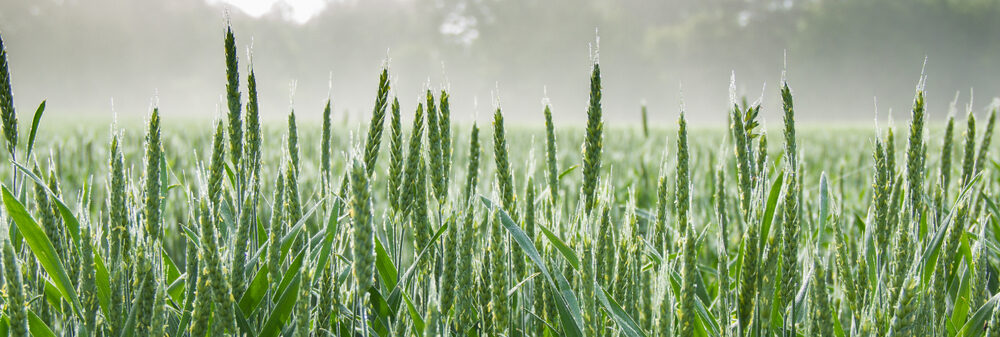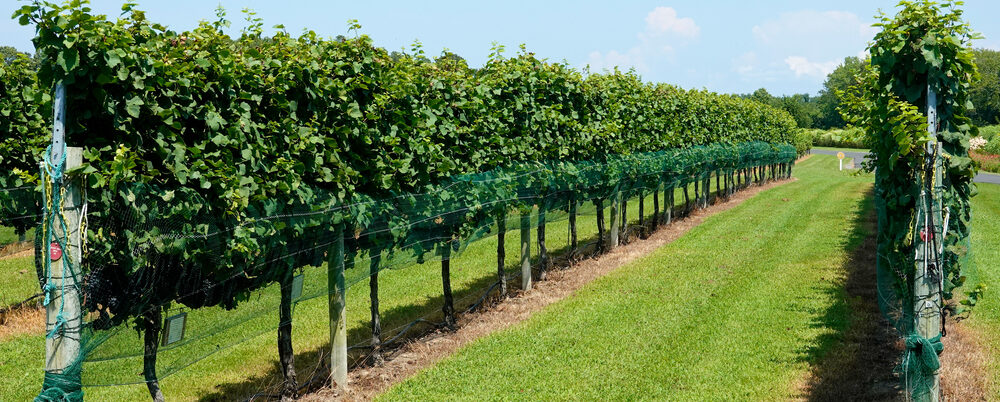The weedkiller Roundup has been making headlines for the past several years for all the wrong reasons. More than 125,000 class-action lawsuits have been filed alleging that the herbicide made people sick, and the company that manufactures this product has suggested it could end up paying up to $12 billion in settlements.
Given Roundup’s strong connection to agriculture, many people across Colorado, a state that is almost half farms and ranches, may be concerned about their exposure to Roundup and wondering what their options may be for filing a class-action lawsuit over the product.
What should residents of Colorado know about Roundup, the product’s history, the potential health implications, and what their legal rights may be to seek compensation if they used it and got sick?
What Does Roundup Do?
Like all herbicides, Roundup kills plants, and it’s been used for almost half a century for this purpose. But the active ingredient that powers Roundup did not start out life as an herbicide. Let’s take a look at Roundup’s history and how it’s used in Colorado farming today.
History of Roundup
For many years, a chemical called glyphosate was a popular treatment used to remove calcium buildup from boilers and other commercial heating and plumbing equipment. But since a discovery by a scientist in the 1970s, glyphosate has had an entirely different purpose: killing weeds.
Thanks to its researcher’s discovery, in 1974 Monsanto Corp. —which also invented controversial products like saccharin and Agent Orange— gained a patent for glyphosate as a weedkiller and began selling it under the name Roundup.
Roundup soon became a blockbuster product, and before long, its name became synonymous with killing weeds and controlling vegetation. Today, Roundup is used in residential lawncare, agriculture, and commercial groundskeeping.
Roundup & Colorado Agriculture
The single biggest use of glyphosate is in agriculture, thanks to the sheer scale of the American farming community. Millions of pounds of glyphosate are spread on American farm fields every year, and since 1992, that number tops an estimated 3.8 billion pounds, according to data from the U.S. Geological Survey.
Let’s take a closer look at farming and glyphosate use in Colorado:
- Since 1992, about 54 million pounds of glyphosate have been used in Colorado, which is lower than the average state.
- In 2017, the most recent year for available data, about 5.5 million pounds of glyphosate were used in Colorado agriculture, and the state has seen a huge increase in glyphosate use since 2000. Between 2000 and 2017, glyphosate use in Colorado rose by more than 1,300%.
- Glyphosate is the most widely used pesticide or herbicide in Colorado farming by nearly triple.
- Pasture crops like hay account for the biggest share of glyphosate used in Colorado (45%), with corn adding about 35%, and wheat 15%.
- Colorado is the nation’s 16th-biggest producer of corn, with the state generating about 142 million bushels in 2020.
Is Roundup Dangerous?
The alleged safety concerns that sparked this legal firestorm surrounding glyphosate and Roundup focus on whether the product causes a form of cancer. Monsanto and its parent company, Bayer AG, have maintained that because glyphosate works by suppressing production of an enzyme that exists only in plants, it can’t possibly harm people or pets.
But three jury verdicts, 125,000 lawsuits, and a growing body of scientific evidence beg to differ. In fact, a recent study published by the University of Washington found that exposure to Roundup increases the risk of developing non-Hodgkin lymphoma by about 41%.
Let’s take a closer look at this form of cancer and why Roundup has been able to remain legal all these years.
Non-Hodgkin Lymphoma
Like any other form of lymphoma, non-Hodgkin lymphoma (NHL) is a cancer of the body’s white blood cells, which causes them to grow out of control. There are several types of cancers that fall under the banner of NHL, but they are different from Hodgkin lymphoma, which is often referred to as “Hodgkin’s disease.”
NHL accounts for an estimated 4% of cancer cases, which equates to about 82,000 newly diagnosed cases in the U.S. per year. The American Cancer Society estimates that about 21,000 people die from NHL in a typical year.
What are the most common signs of NHL? While these symptoms vary from person to person, here’s what to look out for, especially if you used Roundup at least a year ago:
- Chest pain
- Cough
- Chills
- Easy bruising
- Fatigue
- Fever
- Frequent, severe infections
- Night sweats
- Shortness of breath
- Swollen abdomen
- Swollen lymph nodes
- Weight loss
If the symptoms above describe how you or a loved one are feeling after exposure to Roundup, you should seek medical attention. While it’s probable your situation is not urgent, it’s important to catch NHL early. About 72% of people who are diagnosed with this form of cancer will live at least five years, but that rate climbs over 84% if it’s discovered in its earliest stages.
It’s particularly important to seek medical attention if you’ve used Roundup and have experienced at least two of these symptoms for any extended period.
Roundup’s Regulatory Status
The U.S. Environmental Protection Agency (EPA) as recently as 2020 decided to reauthorize glyphosate for use as an herbicide. For many years now, the agency has determined that glyphosate is not a cancer-causing agent, but between about 1985 and 1991, the agency held a different view — that glyphosate was a possible carcinogen. The agency reversed course in 1991 and has consistently determined that glyphosate isn’t a carcinogen.
That’s not to say this is the conventional wisdom. In fact, many regulatory bodies and cancer research agencies across the country and around the globe have differing views. Both the state of California’s environmental agency and the International Agency for Cancer Risk have determined that glyphosate is a probable carcinogen.
New York is expected to become the first state to ban the use of glyphosate on state-owned grounds, and the city of Baltimore recently enacted a law to bar use of the weedkiller anywhere within the city, even for residential purposes. Neither of those bans have gone into effect, and they are subject to legal challenges.
What’s the Current Status of Roundup Litigation?
So far, there have been about 125,000 class-action lawsuits and multijurisdictional litigations filed over Roundup across the United States. The three cases that so far have proceeded to trial have all ended with juries agreeing that Roundup caused the plaintiffs to develop cancer, and the jury members awarded a combined $2 billion in damages.
All three were later reduced on appeal, but fresh off its third loss, in 2020 Bayer decided it would make a settlement offer. The company proposed setting aside as much as $10 billion to settle most current cases and up to $2 billion to establish a compensation structure for future plaintiffs.
Neither settlement has been approved by a judge, though it has been reported that some existing plaintiffs have agreed, at least initially, to end their lawsuits in exchange for a settlement. At least one hearing is expected to be conducted in May 2021 over the proposed $2 billion settlement for future cases.
As for the three trials, Bayer and Monsanto are keeping up appeals in two of them. However, they decided to drop their appeals in the case of school groundskeeper Dewayne “Lee” Johnson, who was the first plaintiff to have his day in court. It’s not known when Johnson will receive his money from Bayer and Monsanto.
Additionally, while some were put on hold pending the settlement talks, it’s expected that several more trials will proceed across the country in 2021.
Labeling Class-Action Settlement
A separate agreement has been finalized in Colorado relating to a $40 million class-action settlement over Roundup’s product label. Colorado residents who purchased Roundup after Feb. 13, 2016 could be eligible to receive up to $90 each.
This offer applies to people who bought Roundup specifically because of wording on the label that mentioned the presence of an enzyme in plants that does not exist in people or animals.
How Much Can I Get From a Roundup Lawsuit in Colorado?
While progress is being made in trials and settlement negotiations, there’s no way to predict how much you might be able to get from a Roundup lawsuit here in Colorado.
None of the plaintiffs in the three cases that have ended in jury verdicts have received their funds yet, and Bayer is still appealing two of the three, so there’s a chance they could be overturned altogether.
However, while it’s too early to say the exact shape of the settlement structure, it’s believed that if approved, the average victim would receive about $165,000, with certain factors equating to higher sums, such as age at diagnosis and extent of disease.
It is also believed that survivors of victims who have already lost their lives to NHL will receive the highest sums, especially spouses or minor children of victims. There’s still a long way to go before these settlement agreements are finalized, and trials continue in the meantime.
What Should I Do if I Have Been Affected by Roundup?
Colorado residents who used Roundup or glyphosate should stop using it, even if it’s for their jobs. And if they are experiencing any of the signs of NHL we outlined earlier, it’s important to consult a doctor as soon as possible.
Negotiations over settlements are ongoing, which means if you haven’t yet filed a lawsuit over Roundup, there’s still time for you to seek justice. The best way to do that is to speak with an expert Roundup class-action law firm in Colorado. We can help connect you with a firm in your area.
Consultations are free, and most victims don’t pay legal fees unless they prevail in their case.





